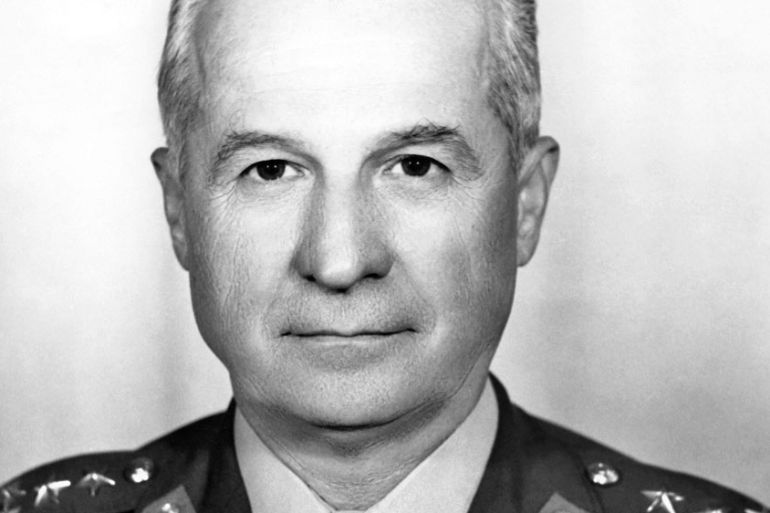Turkey ex-president Evren dies aged 97
Kenan Evren, convicted last year for his role in the country’s bloody 1980 coup, died on Saturday in Ankara.

Turkish former president Kenan Evren, convicted last year for his key role in the country’s bloody 1980 coup, died in the capital Ankara, the state-run Anadolu news agency reported. He was 97.
Evren had received treatment at the GATA military hospital since 2012 but his condition turned critical on Saturday when he was taken out of an intensive care unit and attached to a respirator.
His lawyers and family were summoned to the hospital on Saturday, Anadolu reported.
The former president was sentenced to life in prison last June along with former air force commander Tahsin Sahinkaya, 90, for their roles in the putsch 35 years ago.
The two were the only surviving members of the junta at the time of the trial.
As head of the armed forces, Evren seized power in a pre-dawn assault on September 12, 1980, and went on to rule for the next nine years.
Evren was hailed as a hero at the time of the coup for ending fighting that had left some 5,000 people dead and put the country on the brink of a civil war.
But he soon became one of the country’s most controversial figures, remembered more for the torture of former fighters and their supporters and for introducing a constitution that restricted freedoms and formalised the military’s role in politics.
Upheaval
Evren shut down parliament, suspended the constitution, imprisoned civilian leaders and disbanded political parties after the coup.
The coup was launched as Turkey was rocked by fierce clashes between left-wing and right-wing activists and the action was at the time hailed by many as a “necessary evil” that saved the country from sinking into a state of anarchy.
Evren became the seventh president of the republic after the junta introduced a new constitution that allowed him to formalise his position as head of state.
The coup was the country’s third since 1960. About 650,000 people were detained in the upheaval and 230,000 people were prosecuted in military courts, according to official figures. Some 300 people died in prison, including 171 who died as a result of torture.
Evren was born in Alasehir, western Turkey, the son of migrants from the Balkans. He graduated from the country’s war college in 1938, and later served in the Turkish contingent that fought in the Korean War.
He was promoted to general in 1964 and was appointed Chief of Military Staff in 1978.
Evren’s wife, Sekine Evren, died in 1982. He is survived by three daughters. Funeral arrangements were not immediately announced.